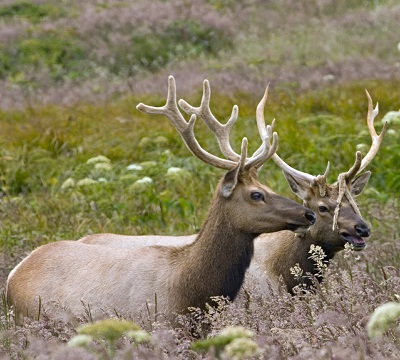It’s happened yet again, just as we predicted. Another USDA-licensed Class B dealer operation has been indicted by the federal government following a two-year investigation into purported illegal activities.
Former random source Class B dealers Floyd and Susan Martin—owners of Chestnut Grove Kennel in Shippensburg, Pennsylvania—were back in court on August 26 for formal sentencing on charges of mail fraud (Floyd) and conspiracy (Susan) stemming from their illegal acquisition of hundreds of dogs and cats for sale to laboratories over a five-year period.
In what the Animal Welfare Institute (AWI) hopes will be the death knell for this cruel cottage industry, a National Academy of Sciences Committee report released on May 29 and funded by the National Institutes of Health (NIH) concluded there is no scientific need to purchase dogs or cats from Class B dealers for NIH research.
Of the 9 billion land animals raised for food in the United States each year, less than 1 percent live out their lives on pasture, breathing fresh air.
In a new study published in Global Change Biology (Wiens & Zelinka, 2024), researchers at the University of Arizona examined a comprehensive suite of factors to estim
The U.S. Fish and Wildlife Service (USFWS) announced on February 1 a proposal to list the North American wolverine as a threatened species under the Endangered Species Act (ESA). USFWS stated in a news release that “Extensive climate modeling indicates that the wolverine’s snowpack habitat will be greatly reduced and fragmented in the coming years due to climate warming, thereby threatening the species with extinction.”
Last December, Representatives of 193 governments gathered in Copenhagen, Denmark for the 15th United Nations (UN) Climate Change conference in what marked the largest gathering of heads of state and governments in UN history.
The National Marine Fisheries Service (NMFS) of the National Oceanic and Atmospheric Administration is proposing to end an exemption that has allowed some shrimp boats to avoid the use of Turtle Excluder Devices (TEDs)—apparently to the detriment of endangered sea turtles.
On May 13 the Food Safety and Inspection Service (FSIS) proposed an amendment to its regulation requiring the immediate humane euthanasia of nonambulatory cattle.
AWI previously reported on our efforts to dissuade tourists from the United States and other countries from bringing whale meat purchased in Iceland back home (See Winter 2011 AWI Quarterly). Joined now by almost 100 other NGOs around the world, we are urging a number of governments whose citizens travel in significant numbers to Iceland to warn travelers that importing whale products is illegal.
Two of the 117th Congress’s final pieces of legislation that made it into law included many provisions affecting animals—both positively and negatively.
Approximately 15% of highly threatened mammals and birds have declined as a result of trade. Much of this trade is for luxury products, including clothes, jewelry, ornament, accessories, and trophies.
Snakes, crocodiles, lizards and frogs are harvested for their skins to be made into shoes, handbags and other exotic leather products. Some animal products such as ivory - used for ornaments, as decoration, in ornamental seals and traditional medicine - are as valuable as gold, threatening elephants and rhinos.
Historically, grizzly bears (Ursus arctos horribilis) inhabited most of the western contiguous United States, while black bears (Ursus americanus) were common in forested areas throughout the country.
The American beaver (Castor canadensis) is a keystone species whose ponds and wetlands help replenish groundwater, serve as buffers against wildfires, and provide habitat for a wide variety of wildlife.
In a significant victory, Colorado has banned wildlife killing contests.
In May, Colorado enacted SB25-168, the nation’s most comprehensive state law to combat wildlife trafficking.
In July, Colorado Governor Jared Polis signed HB20-1343 into law, making Colorado the ninth US state to pass egg-laying hen confinement restrictions.
